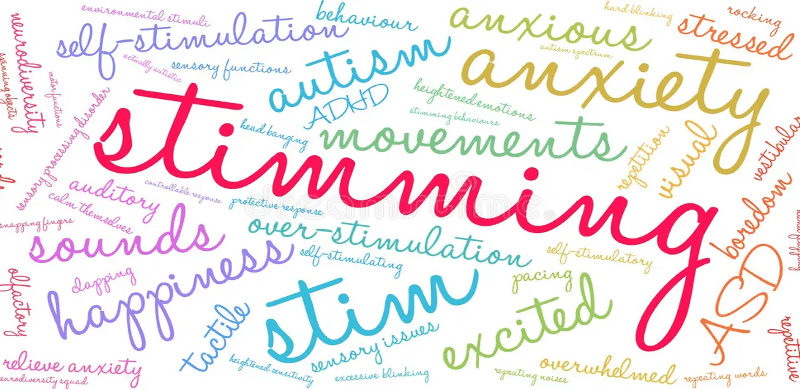
New York (WOMENSENEWS)–Maria Lopez heard catcalls and whistles from police officers. They stopped her, demanded ID and ordered her to a police van. There, they strip-searched her.
One officer “accidentally” brushed against her genitals and breasts while handcuffing her.
Lopez, a 20-year-old transgender woman from Queens, N.Y., was arrested on April 24 for loitering. Since the Sept. 11 attacks four years ago, she said, police have been interpreting the anti-loitering law very broadly. They often profile transgender women as sex workers and target areas such as the Village, where Lopez, an HIV-AIDS educator and activist, was waiting for a bus that April afternoon.
When Lopez, who has had several encounters with police, was booked into Riker’s Island her medical intake examination was done in front of 20 male corrections officers, she said.
None of this, she emphasized, took place on a dark, remote country road. Her harassment by police began on a street in New York’s Greenwich Village “in the middle of the afternoon, in broad daylight, while I was waiting for a bus.”
Lopez related the incident at an Amnesty International-USA press conference in September, when the Washington, D.C.-based human rights group released an 11-page report on police misconduct and abuse against lesbian, gay, bisexual and transgender people. The report included summaries of 23 testimonies from transgender women in New York City who described mistreatment by law enforcement officials.
Lopez–a counselor at People Of Color In Crisis, Inc., which helps homeless and HIV-infected minorities in New York City–said at the press conference she has met other transgender women who have been stopped, searched and detained on phony allegations.
They were subjected to taunts about their sexuality and their transgender identity. Police threatened some with violence, or even death, she said.
A spokesperson for the New York Police Department said that the department treats all people equally, but could not respond immediately on Wednesday with details on what policies the department has in place or to the Amnesty report. Women’s eNews will update the story if the department replies at a later date.
A Day to End Transgender Violence
Every November, marches, candlelight vigils and other events around the world mark Transgender Remembrance Day aimed at ending the violence against transgender people.
Several transgender-related organizations “black out” their Web sites on that day, which began in response to the killing of Rita Hester on Nov. 28, 1998 in San Francisco, seven weeks after college student Matthew Shepard’s hate-based murder in Wyoming.
The case of Hester’s murder has not been solved, like 92 percent of the 3,068 killings worldwide during the past 30 years based on fear, hatred or bias against transgender people, as reported to Interpol.
Organizers of this year’s events are calling particular attention to what they perceive as the cavalier way in which anti-transgender violence–and transgender people themselves–are treated by police.
Many of Lopez’ clients at People Of Color In Crisis, she said, are teens who have been kicked out of or run away from their homes after experiencing hostility or violence over their gender identity and expression. As a result, they may not have identification or other papers, access to legal assistance or eligibility for social services.
Lopez’ state identification card indicates that she is female, as did the documents of the other women she mentioned, at least those who had such documentation.
Taunted to Reveal ‘Real’ Gender
Nonetheless, police and corrections have taunted them to reveal their “real” gender, and their genitals. “There’s nothing telling the cops they can’t behave that way,” said Lopez, who blames the ordeals of transgender women at the hands of police on poor police oversight and training.
Only 1 in 6 police departments surveyed has official policies regarding interactions with transgender people, according to the Amnesty report. Only 1 in 3 has written policies regulating the detention of transgender people.
Lopez’ story didn’t surprise Washington, D.C., Metropolitan Police Department Sgt. Brett Parson, who also spoke at the Amnesty press conference.
“Whether or not stories like Ms. Lopez’ are verified, the perception is there that LGBT [Lesbian, Gay, Bisexual and Transgender] people aren’t treated equally,” Parson said, adding that one result of such a perception is that LGBT people often don’t report assaults and other crimes against them, whether police or civilians committed those infractions.
Parson supervises the Gay and Lesbian Liaison Unit for his department, which is increasingly identified by scholars as a leader in how police agencies develop relations with lesbian, gay, bisexual and transgender communities.
Eleven percent of the 810 documented LGBT crime victims in New York City in 2003 were transgender women, even though they are estimated to be just 1 to 2 percent of the overall LGBT population, according to the Washington-based National Coalition of Anti-Violence Programs. The coalition, which includes organizations that document LGBT-related violence and advocate for victims, interviewed 2,131 crime victims in 12 U.S. cities for its survey that year.
Although statistics on how many of the attacks were committed by law enforcement officials were not compiled in reports from the coalition or Amnesty, both Parson and Lopez contend that police attacks on LGBT people are significant.
Incidents of assault and harassment persist in New York City, which added language to protect “gender identity and expression” to its human rights laws in April 2002.
In adopting the language, New York joined 74 other U.S. municipalities–including San Francisco, New Orleans, Boston, Minneapolis and Rochester, N.Y.
–that had similar laws in effect that make physical or verbal violence against an actual or perceived member of a protected group–such as transgenders–a hate crime.
Hate Crimes Not Documented
However, New York City law still doesn’t require that the police department or any other agency document hate crimes. As a result, advocates say transgender people are reluctant or fearful of reporting harassment against them and may believe that such complaints won’t be taken seriously.
Parson agreed with Lopez that LGBT people–particularly young transgender women–comply with police officers’ demands and threats because they feel they have no recourse.
Too few officers are trained to properly handle transgender people, according to Amnesty International USA Executive Director William F. Schulz. He initiated the study of the largest police department in each state as well as the Washington, D.C., and San Antonio, Texas, departments.
Of the 29 departments that responded, only seven have written policies regarding strip-searches of transgender people and nine have policies on the detention of transgender people. Just 11 of the departments have a LGBT liaison officer on staff.
Schulz, who is also a Unitarian Universalist minister, said the Amnesty study found that police departments routinely profile transgender women as sex workers. As a result, they are often arrested and detained on vague quality-of-life or nuisance charges. In the absence of specific guidelines, law enforcement officers arrest and detain people on loitering charges “simply for standing in one place for too long,” according to Schulz.
One result of this is that transgender crime victims incur the blame when they tangle with the police. “The cops wanted to know what I was doing there at that time of day,” Lopez recalled. “Too many of us internalize the hate. We don’t think we’re good enough to file charges and seek help.”
Parson looked at her. “You have to speak up. You’re worth it.” Then, turning to the audience, he said, “We have to speak up. We’re worth it!”
Justine Nicholas began her life and writing vocation as Nicholas Valinotti. She is a freelance writer based in New York and teaches English at York College.
Women’s eNews welcomes your comments. E-mail us at editors@womensenews.org.
For more information:
Transgender Day of Remembrance:
http://www.gender.org/remember/day/index.html
Amnesty International USA
OUTfront! Lesbian, Gay, Bisexual and Transgender Human Rights:
http://www.amnestyusa.org/outfront
National Coalition of Anti-Violence Programs:
http://www.ncavp.org/
Note: Women’s eNews is not responsible for the content of external Internet sites and the contents of Web pages we link to may change without notice.


